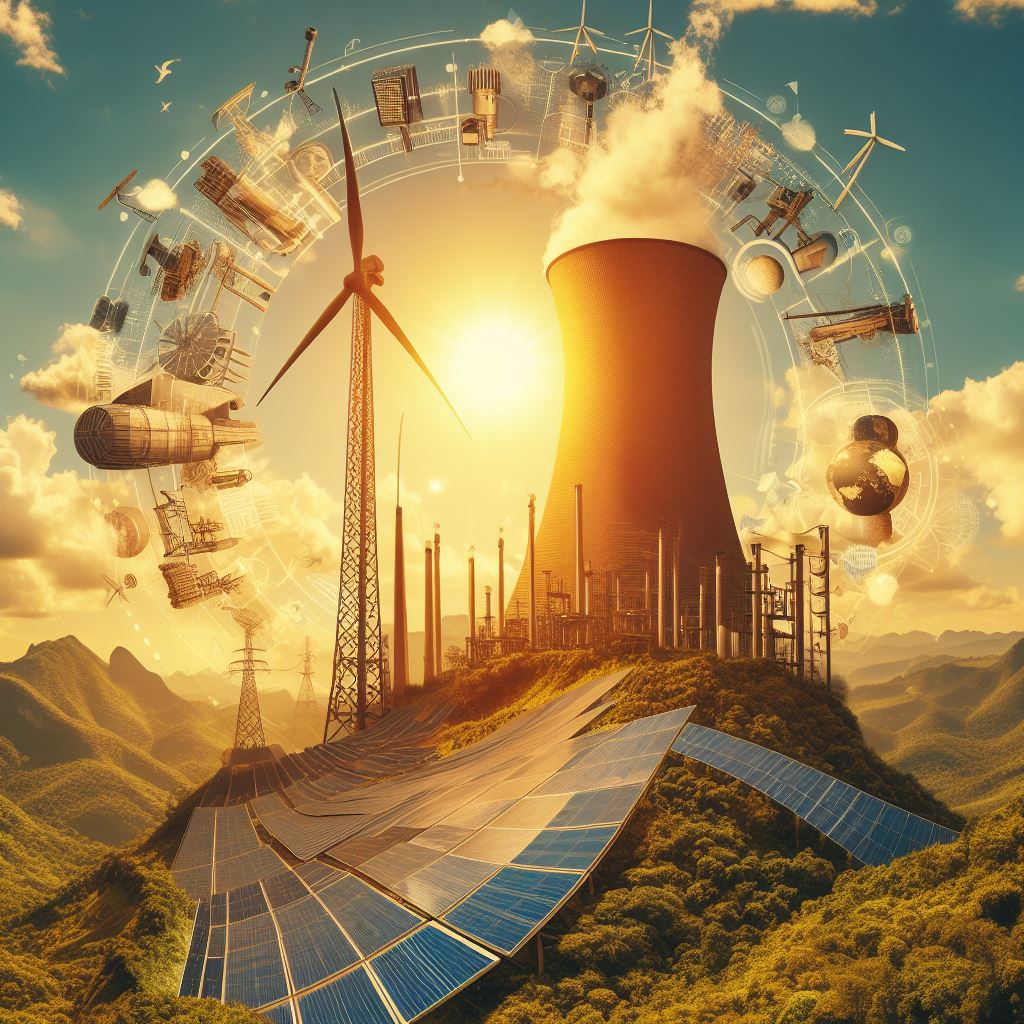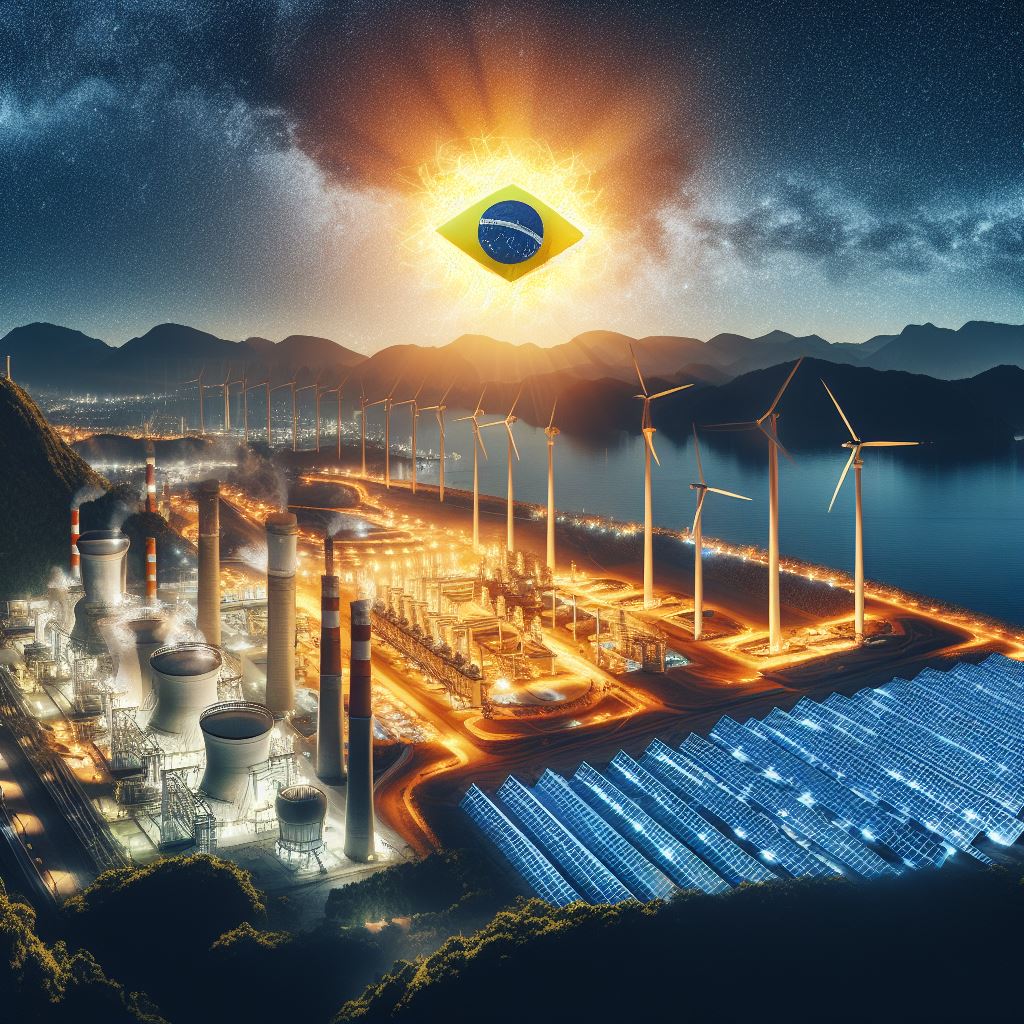
- Brazil increased clean energy production in the past one year. This could help to boost the growth of the economy in the country.
- It also surpassed France as the biggest clean energy producer globally. Other countries could adapt various measures to help grow the clean energy sector.
As the world continues in the transition to clean energy, Brazil has proved it is possible to rely on it. Clean energy is the energy generated from clean sources that does not produce carbon. These sources include solar power, wind power, hydropower, nuclear and geothermal power. Brazil has surpassed France the biggest clean energy producer globally. This is after France reduced the production of nuclear energy. Brazil produced more than 93% of clean energy in the first 9 months of 2023. This energy is mainly from solar panels and the increased warm temperatures. In addition, other countries could adapt to some of the actions to increase their energy production.
A ground anchor is a device used to hold, confine and support buildings and other high standing structures. It helps to reduce the vertical movement of structures and provides stability. This movements may cause bending, toppling of breaking of these tall structures. The ground anchor can inject directly into the ground at an elevated angle from the main pole. It is mostly used to prevent distortion of a retentive wall after excavation.
Global impact of increased clean energy production in Brazil
Brazil’s clean energy has a variety of positive global impacts in the energy sector. The clean energy could help to reduce the reliance on fossil fuels. It could also help to diversify energy resources for resilient energy production. The increased energy production could also help other countries adopt the technologies. Overall, they could reduce emissions which leads to improved air quality. Other countries could also evaluate and examine their set clean energy goals. Ground anchors are from materials that help resist rust and corrosion. These materials include steel, galvanized steel and aluminum. The following are the global impacts of increased clean energy production in Brazil.
- Fossil fuels – increased clean energy production reduces the reliance on fossil fuels. Fossil fuels are a major source of greenhouse gas emissions. Brazil can now reduce global carbon footprint and mitigate climate change.
- Diversification – clean energy helps to make the global energy market more diverse. Diversity makes the energy market less vulnerable to disruptions in the energy supply. This also helps to ensure the energy security of the country. This leads to economic growth and development. Ground anchors also work with other fasteners to help increase security.
- Costs of energy – increased clean energy helps to reduce the global costs of energy. This is from the reduced process of clean energy technologies. The increased energy production helps to make clean energy more affordable for consumers.
- Growth of solar power – solar energy is freely available and is abundant than other sources. It produces low carbon compared to other energy sources. Increased solar power production makes energy more accessible and affordable for everyone.
- Energy exports – the increased energy production in Brazil could make the country a major exporter of clean energy. This could contribute to the growth of the economy through increased revenue.
- Investments – the clean energy sector could attract more investments from different parts of the world. This could lead to the growth of the technology and availability of clean energy in more countries.

Measures other countries could take to promote the growth of clean energy
The increased clean energy production in Brazil shows the possibility of other countries to transition to clean energy. This could help the countries meet their growing energy needs. The following are the measures they could take to increase clean energy production.
- Financial incentives – the governments could provide financial incentives for clean energy projects. This could include tax breaks and subsidies to the project development. It could also help reduce the upfront costs of the projects.
- Investment in research and development – these investments could lead to new and improved clean energy technologies. This could help to reduce the costs of clean energy and increase efficiency.
- Subsidies for fossil fuels – the governments could also remove the subsidies for fossil fuels. This could make fossil fuels cheaper and discourage the investments in the fuels. This could lead to more investments in clean energy projects.
- Clean energy targets – this includes setting targets for the share of electricity generated from renewable energy sources.
Frequently Asked Questions
traditionally, Brazil relies on the hydropower production. Hydropower energy contributes to 80% of domestice electricity production in Brazil.
Hydropower increases energy production, boost economy growth, creates jobs and improves energy security. It also promotes the exportation of energy to other countries.
